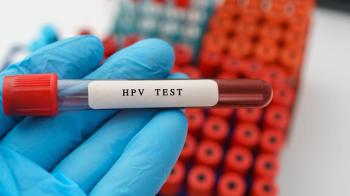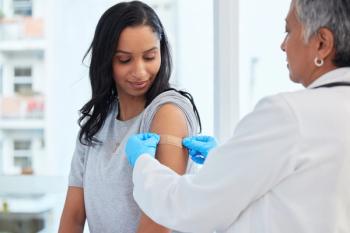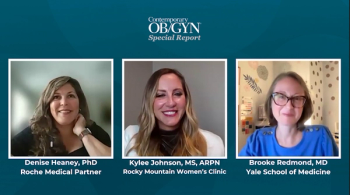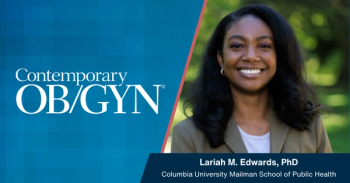
Children born preterm face significantly reduced odds of completing high school and university compared with full-term peers.

Children born preterm face significantly reduced odds of completing high school and university compared with full-term peers.

As public uncertainty about vaccination during pregnancy grows, experts highlight the vital role of trusted health care providers in addressing hesitancy.

A new study shows that directly mailing human papillomavirus self-sampling kits improves screening adherence and offers superior cost-effectiveness.

A study highlights the potential of salpingectomy to reduce ovarian cancer incidence, while experts call for international collaboration.

Review some of the top stories from the Contemporary OB/GYN website over the past week and catch up on anything you may have missed.

A review found labetalol demonstrates modest benefits in reducing preeclampsia and preterm birth in hypertensive pregnancies.

On October 2, 2025, the FDA approved a generic version of mifepristone to be used in a regimen with misoprostol for abortion.

Take a quick look at everything you may have missed during the third quarter of 2025, including the latest FDA approvals, top stories, and exclusive interviews.

A survey reveals declining confidence in COVID-19 vaccination during pregnancy, with fewer adults recommending it despite scientific evidence.

A panel issued new consensus statements on hormone therapy for breast cancer survivors, highlighting when estrogen may be considered.

Take a quick look at everything you may have missed in September, including the latest FDA updates, top stories, and exclusive interviews.

A study found that menopause does not increase disability progression in women with multiple sclerosis

Rising childcare costs, limited access to daycare, and shifting generational attitudes are driving historic declines in US birth rates.

Experts discuss the future of healthcare, emphasizing innovative STI care, education, and the importance of collaboration in improving patient outcomes.

Panelists explore the future of STI screening and management, emphasizing the importance of guidelines and innovative diagnostics in women's health.


Discover how accessible STI testing and early detection enhance maternal-fetal health, reducing risks for mothers and newborns alike.

Innovations in diagnostic testing enhance patient care, empowering women with at-home options and faster access to essential health services.

Experts discuss the FDA's priority review of gepotidacin, an oral gonorrhea treatment, highlighting its potential to improve women's health and access to care.

Experts discuss updates in STI testing, congenital conditions, and best practices for pregnant women in this insightful healthcare panel.

Check out the top conferences happening in the fourth quarter of 2025.

A new study shows surgeons are more likely to adopt opportunistic salpingectomy for sterilization when their peers already use the procedure.

A new analysis shows US births have fallen 22% since 2007, raising concerns about delayed childbearing and shrinking school enrollments.

Mothers with multiple adverse childhood experiences faced double the risk of preterm birth, highlighting intergenerational health effects.

A new study reveals that preconception body mass index outside the normal range is linked to lower fertility and greater miscarriage risk.

A trial found that antenatal betamethasone significantly lowers the risk of respiratory complications in late preterm twin pregnancies.

In the 52-week OASIS-3 trial, elinzanetant significantly reduced the frequency and severity of hot flashes and night sweats.

A review highlights viscoelastic testing as a cost-saving, minimally invasive tool that could improve maternal outcomes.

Lariah M. Edwards, PhD, discusses how cost, accessibility, and inadequate policies limit women’s ability to reduce harmful chemical exposures.

Review some of the top stories from the Contemporary OB/GYN website over the past week and catch up on anything you may have missed.